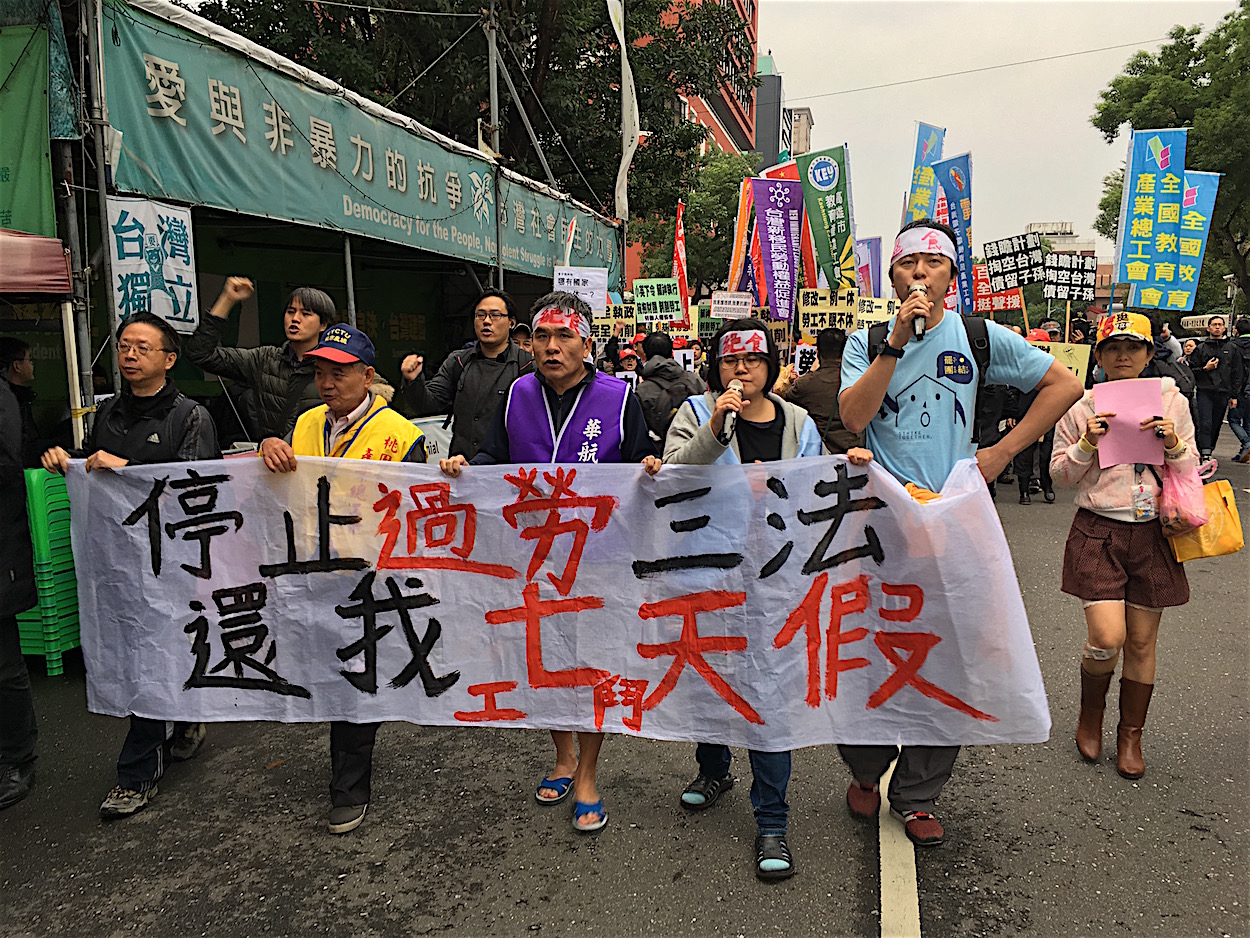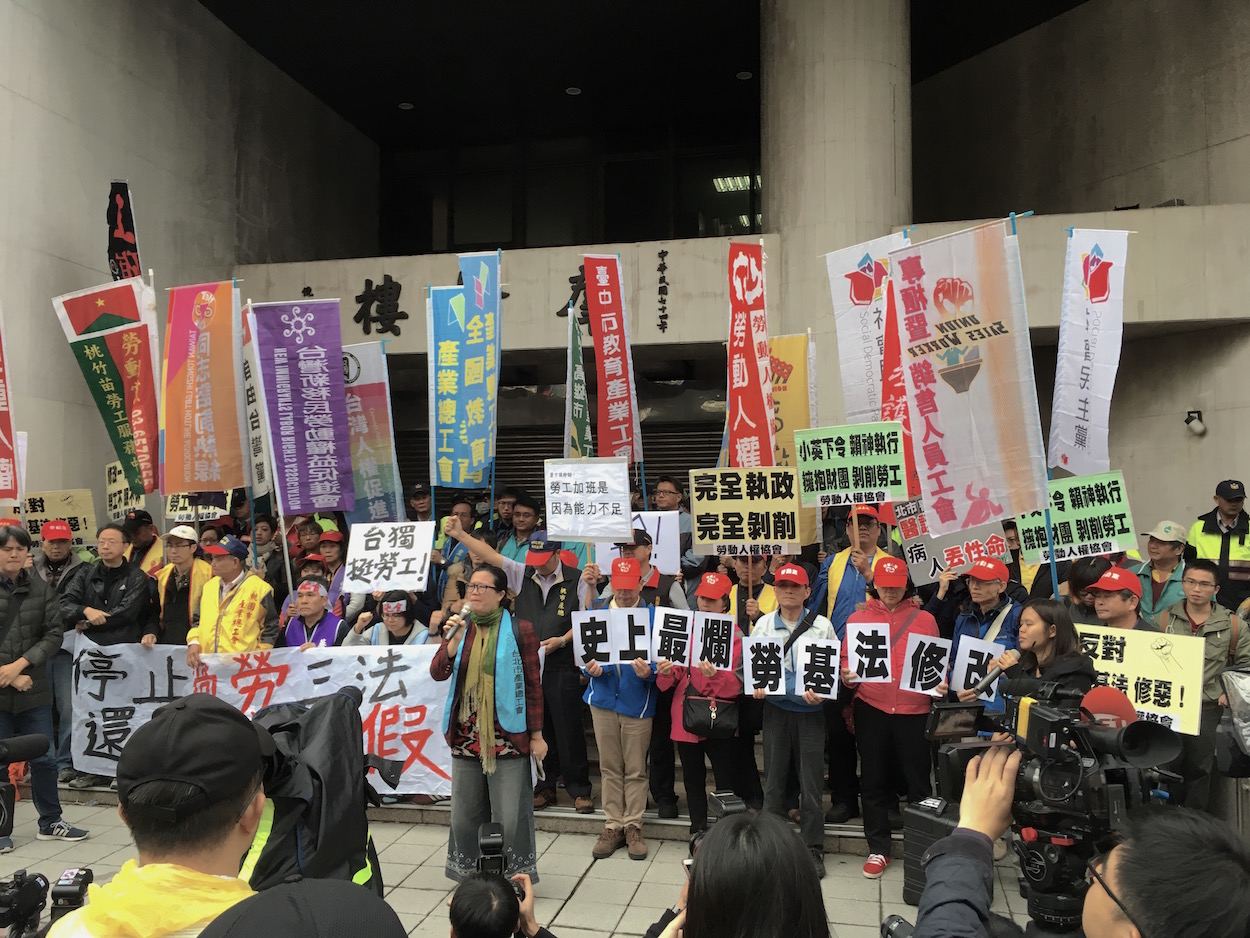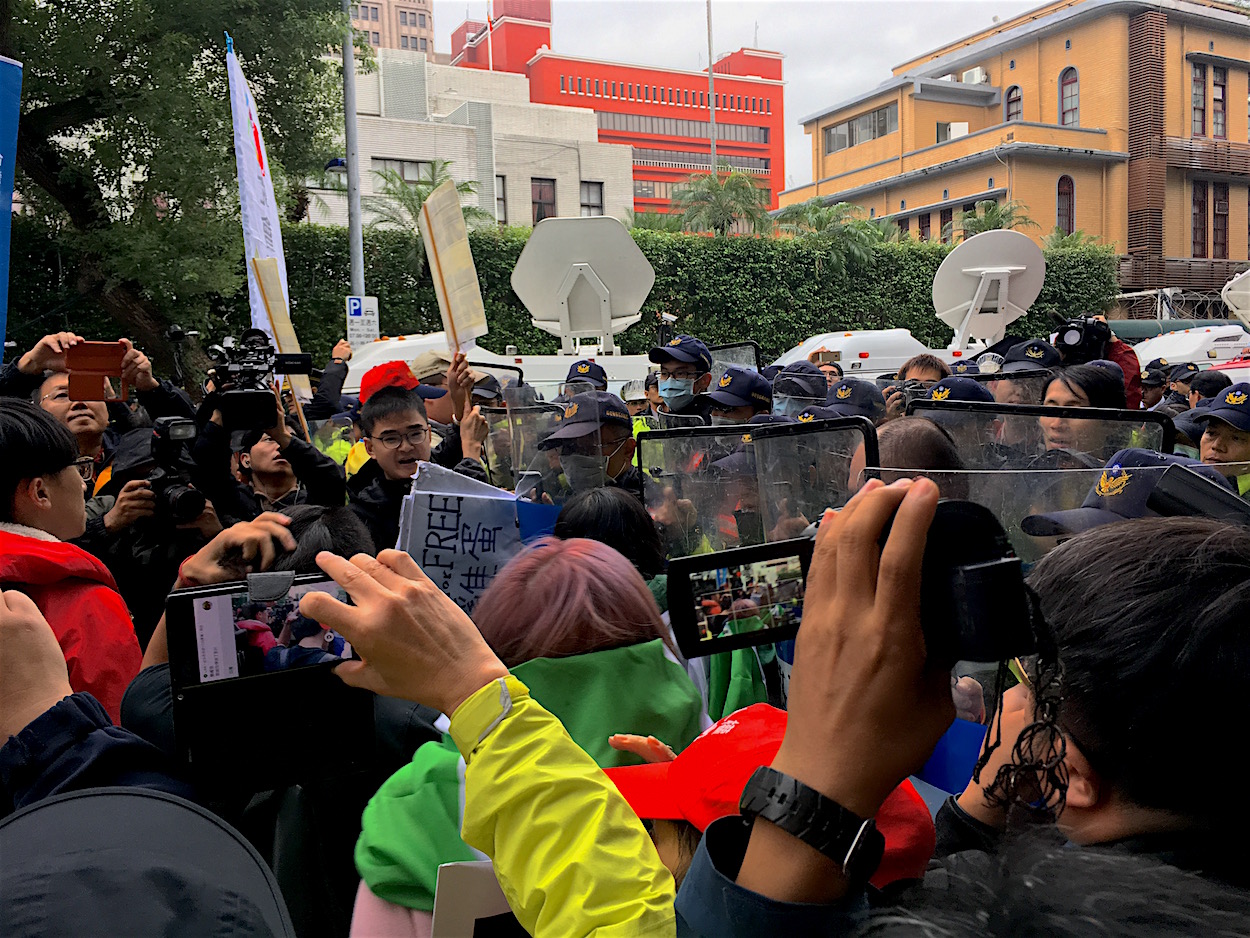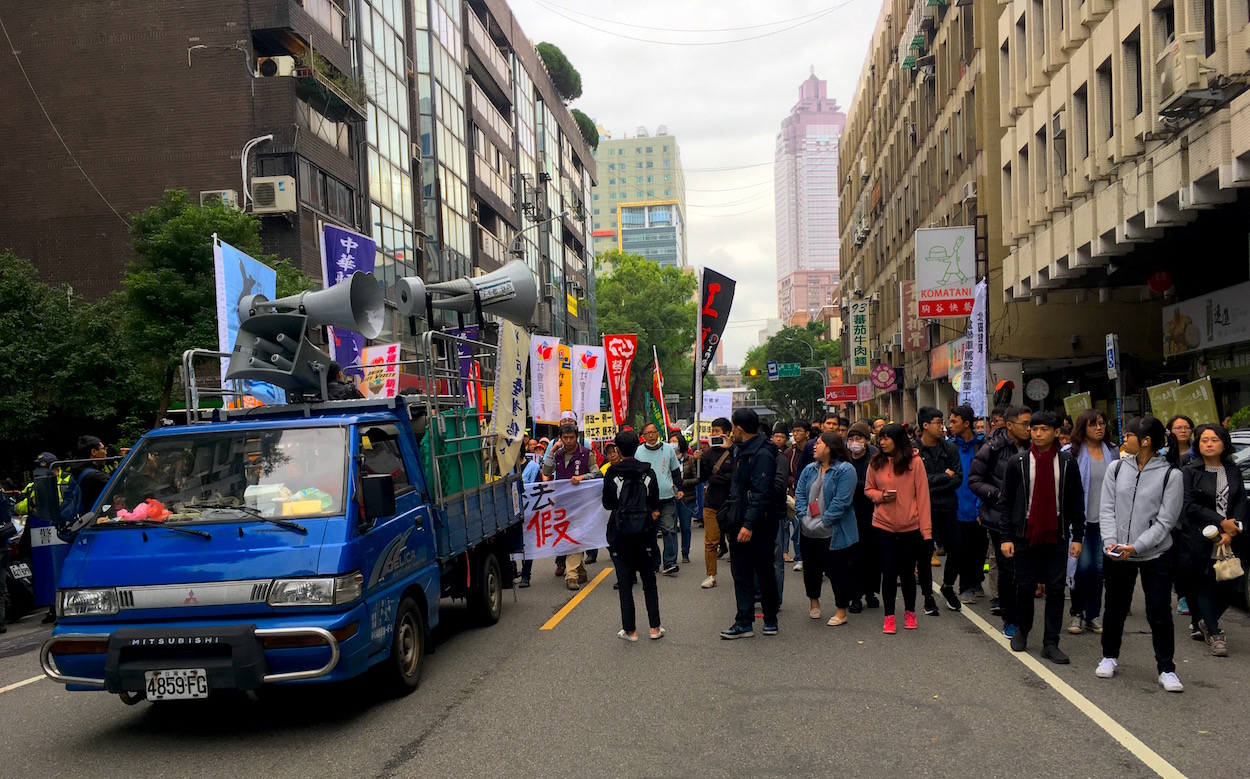by Brian Hioe
語言:
English
Photo Credit: Brian Hioe
WAS TODAY A victory for organized labor in Taiwan and a defeat for the DPP? In the end, following a grueling day of protest which began at 9 AM and saw no less than three attempts to storm the Legislative Yuan, the committee meeting in which planned changes to the Labor Standards Act were to be reviewed was cancelled at around 5:30 PM. Protesters dispersed shortly after, originally having planned to gather for larger demonstrations at nightfall. This came on the heels of a second filibuster against the bill by Hsu Yung-Ming of the NPP in the early afternoon, the DPP accidentally allowing the KMT to pass a motion for discussion of the bill without any time limit, and Chiang Wan-An of the KMT continually asking questions about the bill as a stalling tactic.
As a result, organized labor groups were able to prevent planned changes to the Labor Standards Act from passing. The bill was not sent back to the Legislative Yuan following a committee review. Nevertheless, the DPP is expected to continue to try and push the bill through into law before the end of the year. As such, calls have taken place for a subsequent mobilization to take place on December 4th, when the bill may come up next for review.
 Photo credit: Brian Hioe
Photo credit: Brian Hioe
In reviewing the day’s events, it remains unknown how labor groups and their NGO allies would have mobilized had the meeting not been cancelled. Labor groups called for supporters to gather on-site at nightfall, following protests in the morning and afternoon, seeing as more people would be free to come over to the Legislative Yuan after they got off of work. It is generally suspected that the DPP deliberately scheduled the committee review to take place at 9 AM on a weekday precisely in order to avoid large amounts of people being free to protest against the bill.
Nevertheless, despite the ultimate success of organized labor groups in preventing the planned changes from passing, we do well to remember that while today’s demonstrations were intense, they were not actually very large. Protesters likely did not ever surpass 200 individuals in number. During at least one of the attempts to storm the Legislative Yuan, there were probably no more than fifty demonstrators on-site. However, what demonstrators lacked in terms of numbers, they made up for in terms of willingness to take direct action. Indeed, today’s demonstration had an unusually high proportion of veteran activists present, from a wide range of student groups, unions, and NGOs.
 Photo credit: Brian Hioe
Photo credit: Brian Hioe
Likewise, with the knowledge that the planned changes to the Labor Standards Act would probably pass into law if they were unable to block its progress, as the last of a long string of demonstrations in previous weeks, this lent today’s demonstration a sense of emergency. Workers and youth activists are quite keenly aware of how the law stands to directly affect their lives if passed, seeing it could reduce the rest period that workers have between shifts to as low as eight hours, meaning that workers might not even get eight hours of sleep if new regulations pass. Taiwanese workers already work the fourth longest working hours in the world, after all. And workers could also see their vacations deferred by their employers year after year.
As such, given the DPP’s determination to push the bill through the legislature, it remains to be seen what action that activists should take next. If the DPP is willing to push a bill as potentially provocative as planned changes to the Labor Standards Act through into law, as it also was last year, the DPP may simply be willing to hazard any public backlash, having long since decided that it is more important to have the support of big business than of the Taiwanese public writ large. This is reflected in the willingness of the DPP to use strong-arm tactics to push the changes through into law through circumventing oversight measures and due process, in spite of risking the accusation of using undemocratic means lacking transparency. And so any protest by demonstrators could simply be to little effect.
 Clashes with police. Photo credit: Brian Hioe
Clashes with police. Photo credit: Brian Hioe
It may be that to force the DPP to change course will have to leverage on existing splits within the party, forcing a reversal of course. If it the Tsai administration and Lai cabinet which is determined to push changes to the Labor Standards Act into law, protesters may need to pressure DPP legislators more hesitant about the possibility of alienating their constituencies through passing the law to reverse course, as occurred with the DPP’s reversal on Tsai Ing-Wen’s 2016 campaign platform in favor of marriage equality. This may require breaking the ties of political loyalty between DPP legislators and DPP majority speaker Ker Chien-Ming, however.
Or this may require a revolt from within the party, seeing as many post-Sunflower Movement activists actually joined the DPP as grassroots-level political workers or as legislative aides, and they chafe against working for a party with such reactionary labor policy. In this light, with the NPP recently announcing ambitious plans to run candidates in most constituencies across Taiwan in 2018 local elections, the DPP runs the severe risk of alienating its key constituencies and allowing the NPP to eat its lunch in front of it. While this may happen either way, raising this threat could at least be effective on forcing the DPP to back down.
 Photo credit: Brian Hioe
Photo credit: Brian Hioe
Another possibility is simply that more drastic forms of direct action and larger mobilizations will be necessary in order to convince the DPP that there is a line it cannot cross with the public on the issue of labor laws. But, again, as most protests against the planned changes have taken place during the morning or at times in which most people are working, the full mobilization capacity for demonstrating against these planned changes remains unknown. As such, Taiwanese labor may find itself in battle again with the DPP soon enough, and it continues to face significant challenges.

